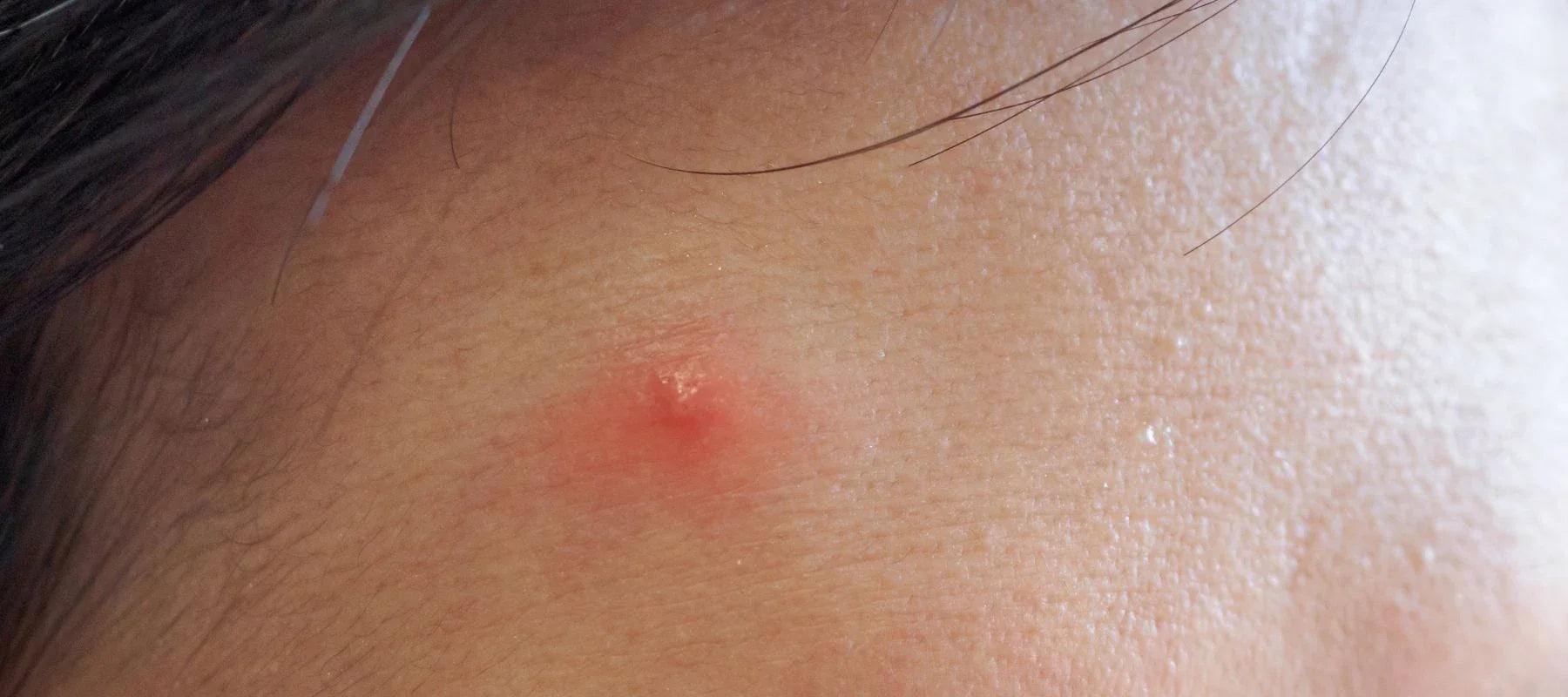
Demystifying inflammatory acne: A comprehensive guide
- Introduction to inflammatory acne
- Understanding the causes of inflammation in acne
- Types of inflammatory acne
- Identifying inflammatory acne: symptoms and signs
- Traditional treatments for inflammatory acne
- Lifestyle changes for managing inflammatory acne
- Prevention tips for future breakouts
- Conclusion
Inflammatory acne can be frustrating to deal with. The red bumps constantly show up uninvited. Knowledge is power in understanding this frustrating skin condition. Let an illuminating resource expand your acne clarity to achieve consistently clear, healthy skin. Continue reading to understand inflammatory acne meaning, the causes of acne inflammation and start clearing up your complexion for good.
Introduction to inflammatory acne
Are you looking for answers to what is inflammatory acne? Inflammatory acne is a common skin condition characterised by red, swollen bumps, which can be painful and contain pus. Clogged hair follicles and pores cause acne, and inflammatory acne occurs when bacteria infect these clogged follicles and trigger inflammation.
Compared to non-inflammatory acne, which causes whiteheads and blackheads, inflammatory acne tends to be more severe and causes nodules, pimples, or cysts deep in the skin.
Inflammatory acne most often affects the face, back, chest, and shoulders. It can occur at any age but is most common during the teenage years. Both men and women can develop inflammatory acne, which, while frustrating, has many effective treatments.
Also read: Understanding Inflammatory Acne: Causes, Symptoms, and Treatment Options
Understanding the causes of inflammation in acne
Inflammation is the root cause of the red, painful bumps associated with inflammatory acne. It starts with a blocked pore, which occurs when dead skin cells, excess oil (sebum), and sometimes bacteria clog up a hair follicle. This forms a micro comedo, which, if left untreated, continues to fill with debris and expand.
Eventually, dead skin cells, oil, and bacteria rupture the follicle walls and spill into the surrounding skin. This triggers the body’s immune response, which sends white blood cells to fight any infection, causing swelling and pus. Hormones, genetics, and stress can worsen acne inflammation. Identifying and managing these triggers is critical for prevention.
Types of inflammatory acne
There are a few main types of pimples and blemishes which characterise inflammatory acne:
- Papules - Small, pink or red bumps with defined borders, may contain pus
- Pustules - Larger inflamed bumps containing visible pus
- Nodules - Large, solid, painful lumps deep within the skin
- Cysts - Soft, pus-filled lumps forming under the skin, very painful to the touch
The type of lesion depends on factors like a person’s genetics and severity of inflammation. Identifying the specific types of pimples on your skin will help guide proper treatment. Those with more severe inflammatory acne, especially recurring nodules or cysts, typically need medical treatment for clearance.
Also read: Understanding Cystic Acne on Face: A Comprehensive Guide
Identifying inflammatory acne: symptoms and signs
Besides the visible red bumps and pus-filled pimples mentioned already, other symptoms that help identify inflammatory acne include:
- Redness and swelling around bumps
- Lesions which are tender, sore, or painful
- Itching or burning sensations
- Peeling/flaking skin
- Noticeable scarring after lesions heal
There are signs specifically pointing to cystic acne. The most severe inflammatory form includes large, red, tender, soft bumps. Cystic acne mainly occurs along the jawline, chin, and cheeks, with potential scarring. Seeking emergency acne care is critical for widely spread cystic cases before permanent scarring sets in.
Traditional treatments for inflammatory acne
Many medications help combat acne, from over-the-counter cleansers to oral antibiotics. Typical treatment options include:
- Over-the-Counter Products: Overnight Acne Spot Corrector containing sulfur, salicylic acid, zinc oxide, glycerin, and calamine work exceptionally well for shrinking existing breakouts and preventing new whiteheads and blackheads overnight.
- Topical Retinoids: Prescription vitamin A creams like tretinoin and tazarotene stop dead skin buildup in follicles through exfoliation while killing acne bacteria.
- Oral Antibiotics: Doxycycline, tetracycline, and minocycline pills fight infection and bacteria overgrowth internally, reducing associated inflammation.
- Anti-Androgen Agents: Spironolactone pills or combined oral contraceptives balance out excess androgens that trigger hormonal acne for some women.
- Isotretinoin Pills: The powerful acne medicine isotretinoin, a vitamin A, works by shrinking oil glands and reducing bacteria in severe, treatment-resistant inflammatory acne.
Some patients need multiple approaches, like combining antibiotics with benzoyl peroxide applications and retinoids, to treat acne fully. Harsh scrubs, astringents, or at-home extractions tend to worsen it. Seeking professional medical advice is wise to find an effective, personalised treatment plan for inflammatory acne care.
Lifestyle changes for managing inflammatory acne
In addition to medications, adjusting certain lifestyle factors helps control inflammation and prevent inflammatory acne flare ups:
- Keep a consistent skin cleansing routine using gentle cleansers morning and night.
- Avoid excessive touching and picking at the face to prevent bacteria from spreading.
- Manage make-up hygiene, remove products nightly, and avoid sharing applicators.
- A lightweight, non-greasy Acne Care & Healing Gel Moisturiser with Tea Tree & Cica containing squalane, niacinamide, tea tree extract, and cica extract helps heal current breakouts while keeping skin calm and preventing future acne.
- Follow a low-glycemic diet, limiting dairy, high-sugar foods, and refined carbs.
- Stay hydrated, consume plenty of water or healthy fluids like herbal tea.
- Find healthy stress relief through yoga, meditation, journaling, or other activities.
- Stick to an exercise routine with regular showering immediately after workouts.
- Sleep 7-9 hours nightly for hormonal balance.
By pairing medications with positive lifestyle adjustments, individuals can better manage acne symptoms and achieve clearer skin long-term.
Prevention tips for future breakouts
Once inflammatory acne clears, continuing prevention steps minimises future breakouts, including:
- Keep taking any medications or supplements prescribed by your dermatologist.
- Only use oil-free cosmetics and skin care products labelled “non-comedogenic”.
- Exfoliate regularly using products with salicylic acid or retinoids to avoid dead skin buildup.
- Shampoo hair frequently if prone to body acne on the back and shoulders.
- Avoid excessive sun exposure and tanning beds that worsen inflammation.
- Stick to healthy lifestyle habits, like a clean diet, exercise, and ample sleep.
Conclusion
Inflammatory acne can negatively impact confidence and quality of life. Thankfully, solutions exist, like The Pink Foundry's overnight acne spot corrector and lightweight moisturising gel for acne-prone skin. They combine proven active ingredients to both treat and prevent inflammatory acne. Visit The Pink Foundry’s website today to shop their acne-fighting skin saviours and achieve clear, healthy-looking skin.























































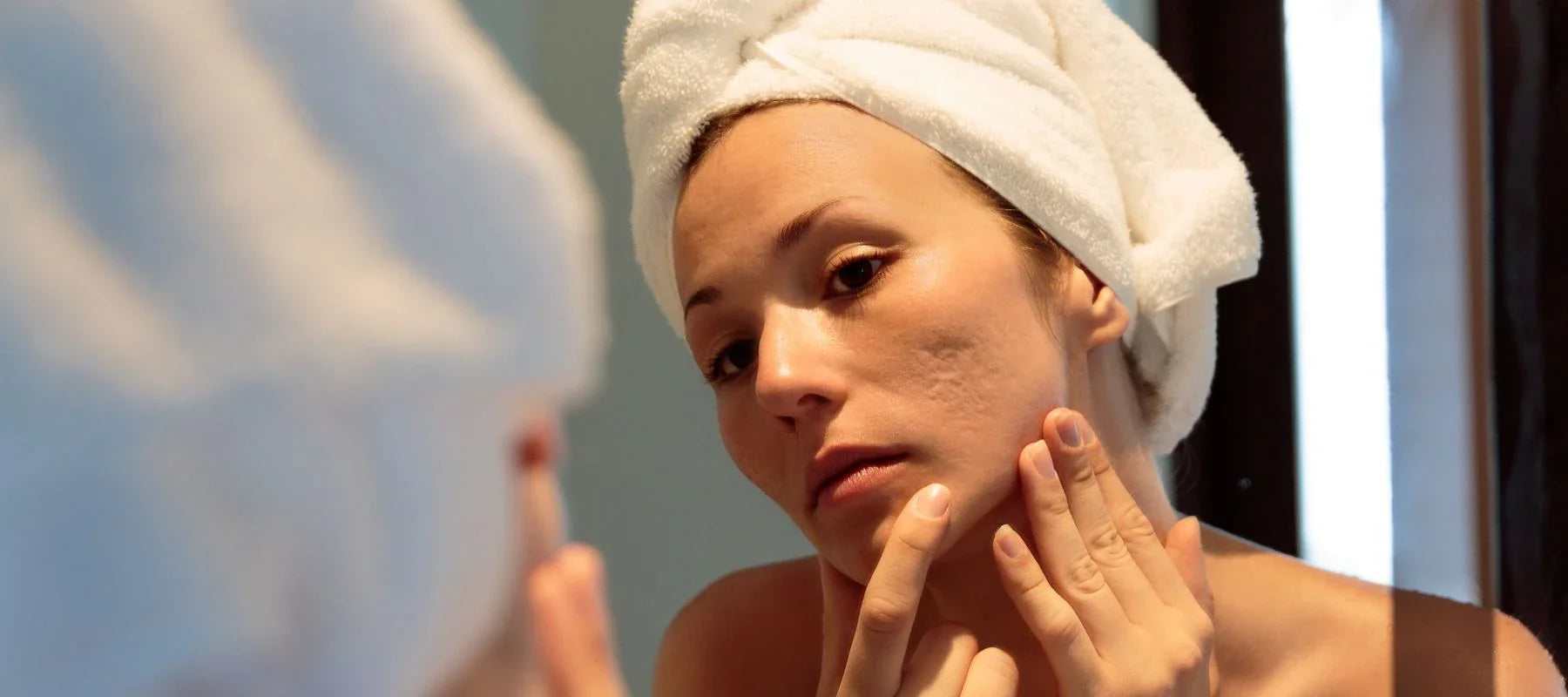
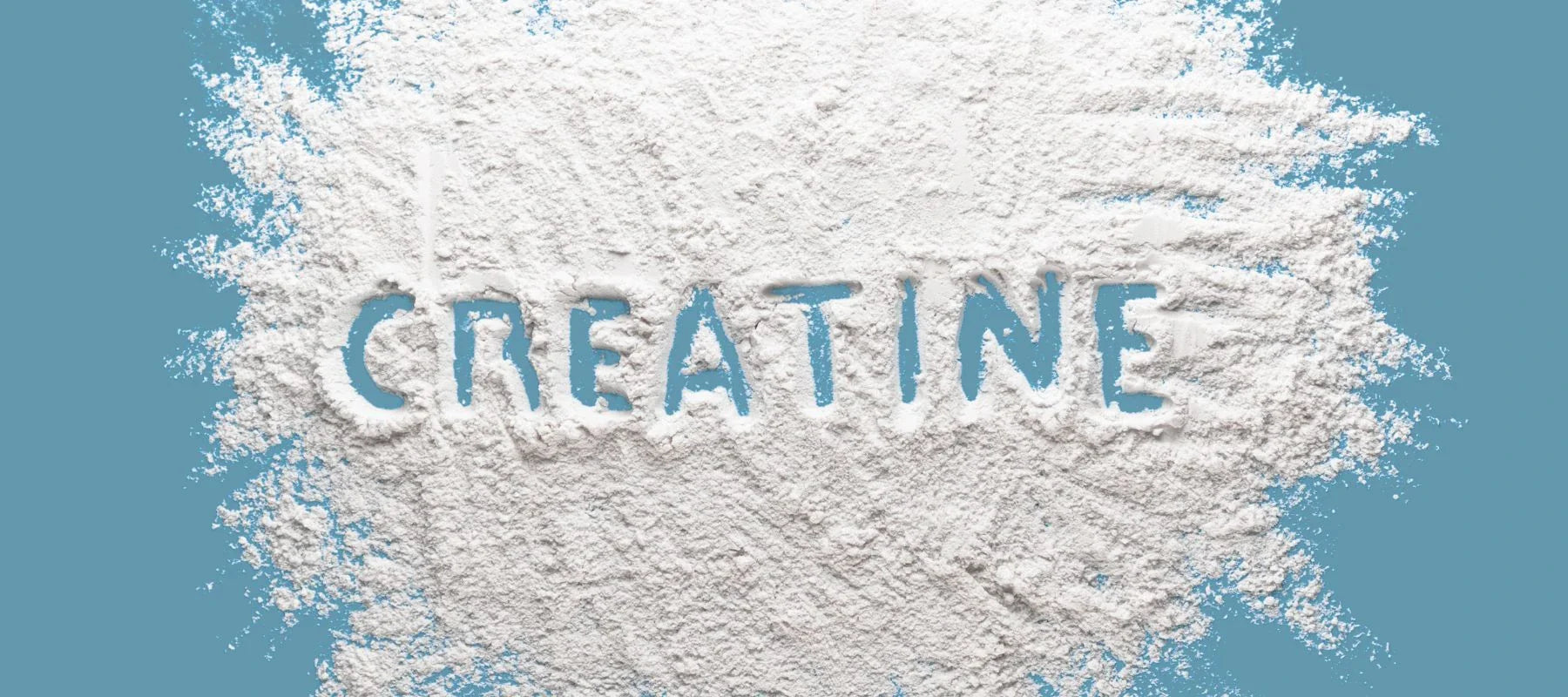
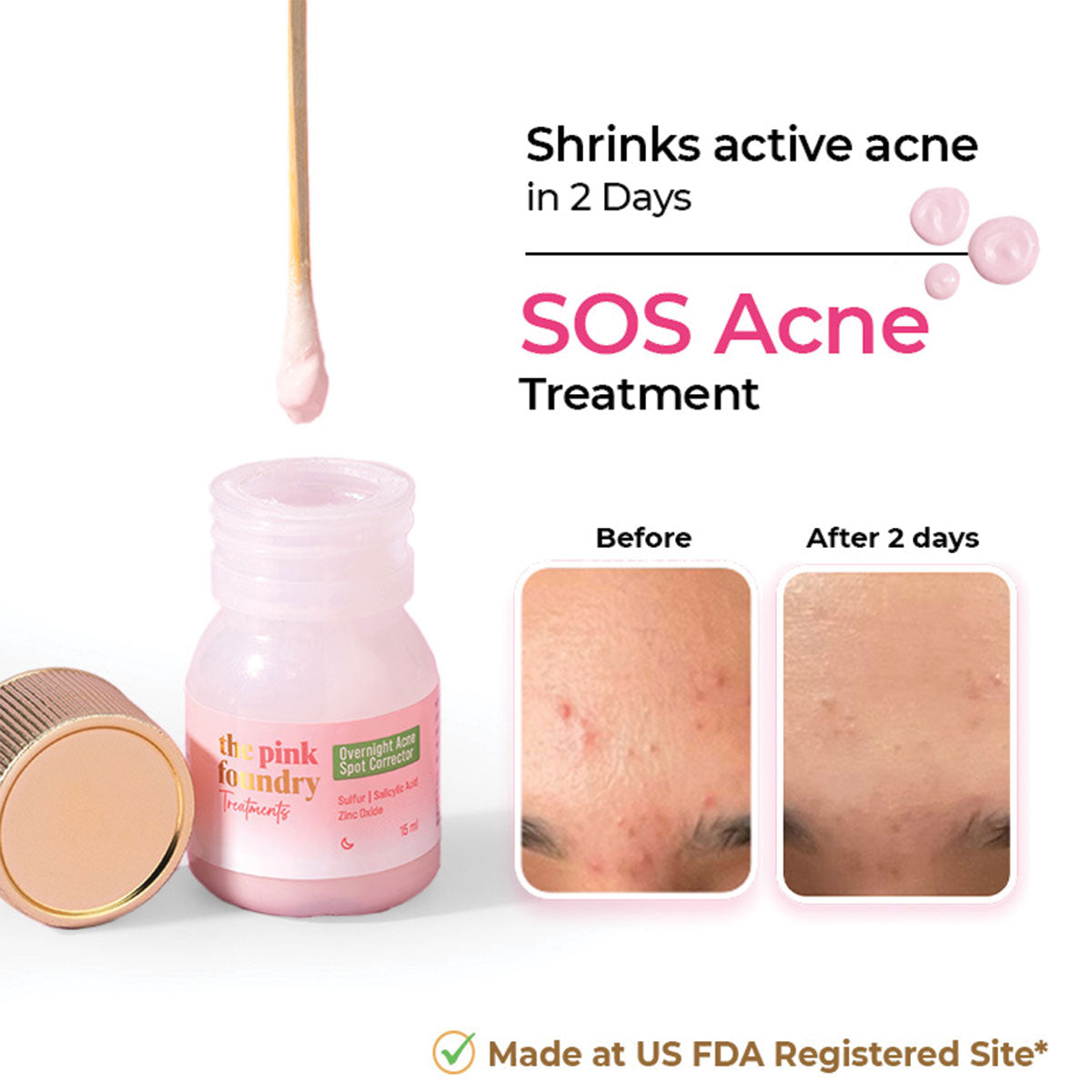
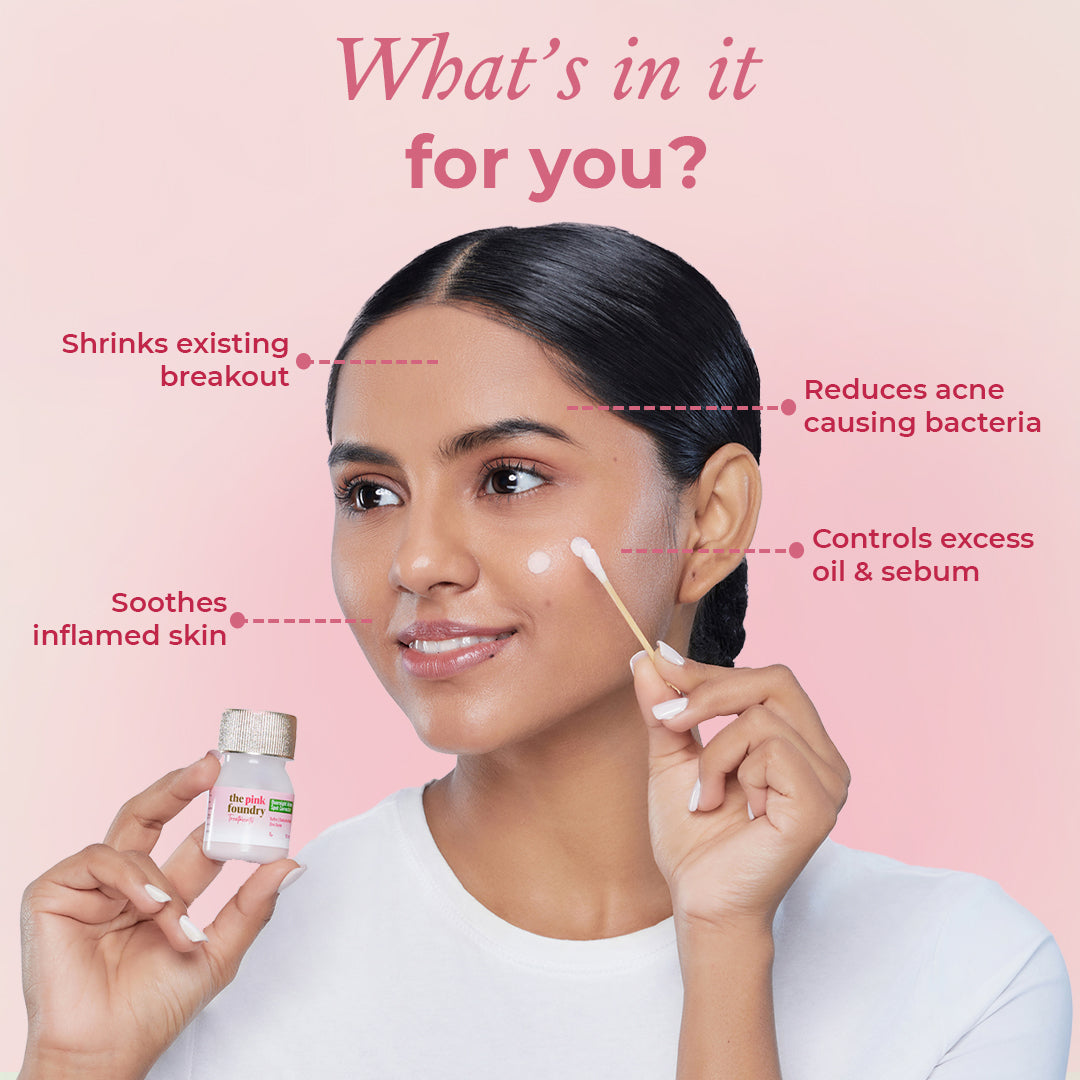


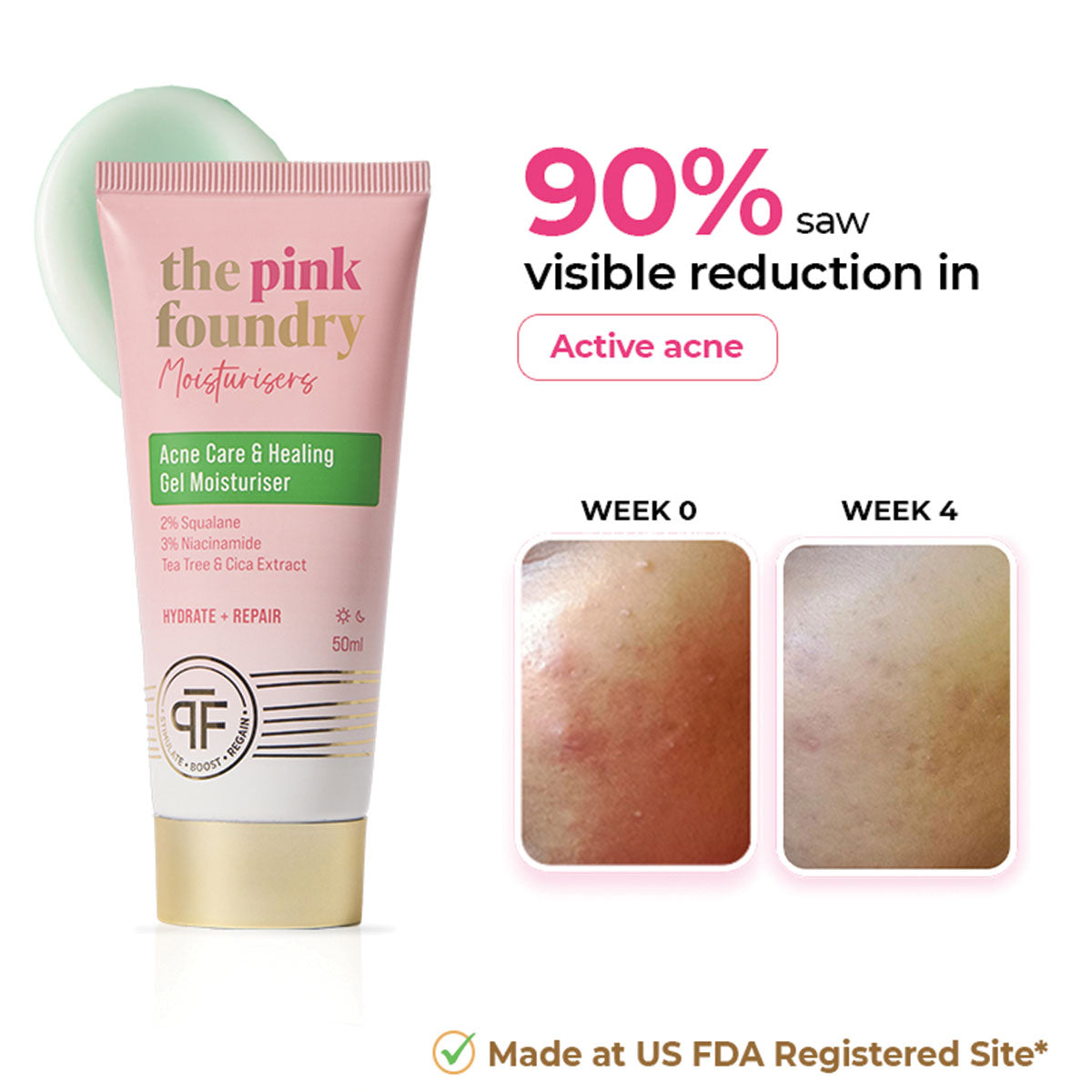
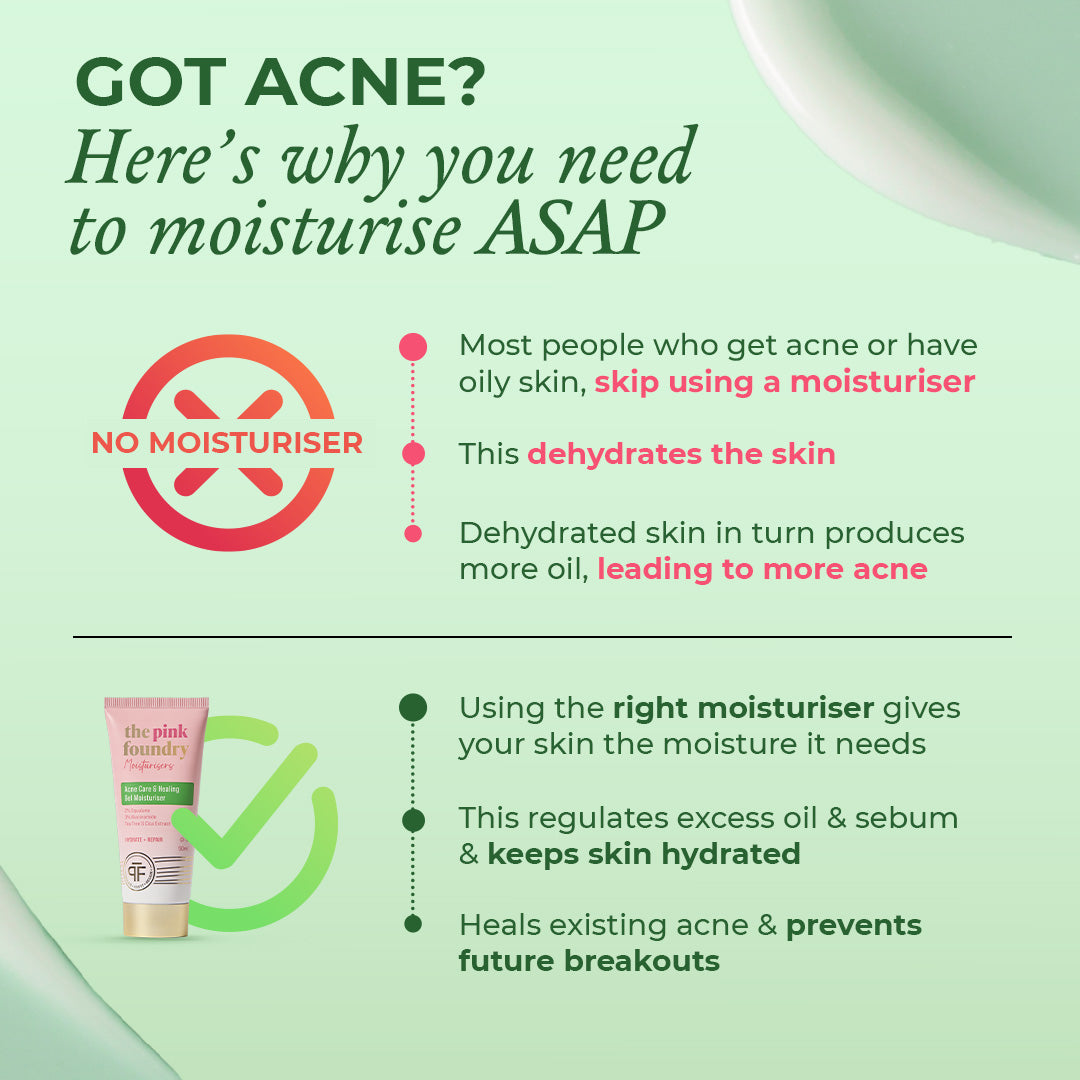










Leave a comment
This site is protected by hCaptcha and the hCaptcha Privacy Policy and Terms of Service apply.